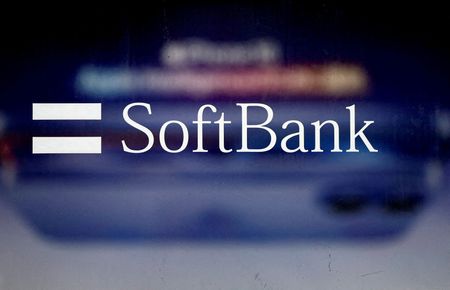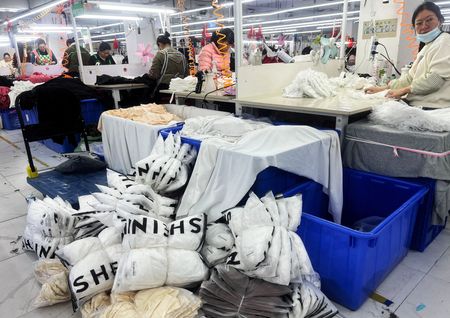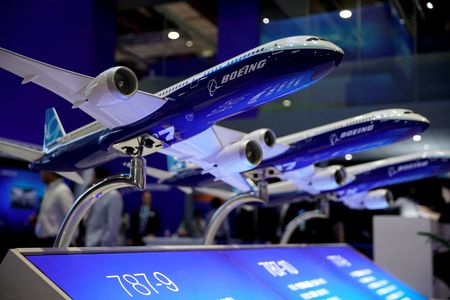By Anton Bridge
TOKYO (Reuters) -Japan’s SoftBank Group reported its first annual profit in four years on Tuesday, likely bringing relief to investors scarred by high-profile failures as it embarks on another series of mammoth tech investments.
The Tokyo-based conglomerate reported a 1.15 trillion yen ($7.78 billion) profit for the year ended March versus a loss of 227.6 billion yen a year earlier.
The figure was boosted by the 517 billion yen booked for January-March – more than double that earned in the same period a year earlier – on strong performance from telecommunications holdings and higher valuations in its later-stage startups.
The turnaround illustrates the risk and reward of SoftBank’s approach of investing in high-growth technology companies, epitomised by the success of its investment in Chinese e-commerce leader Alibaba Group and bankruptcy of U.S. office-space startup WeWork.
SoftBank is in the midst of its most extensive spending spree since the launch of its Vision Funds – in 2017 and 2019 – this time targeting companies it deems to be leading the development of artificial intelligence.
In March, it said it would acquire U.S. semiconductor design company Ampere for $6.5 billion and announced new investment of up to $30 billion in ChatGPT maker OpenAI.
SoftBank is also leading financing for the “Stargate” project – a $500 billion scheme to develop data centres in the United States – saying most of the money would come through lenders in project finance schemes.
The scale of the commitments has prompted analysts and investors to question SoftBank’s ability to weather market volatility brought about by new U.S. tariffs.
SoftBank has identified over 100 potential sites for Stargate but is still conducting due diligence and so it is too early to start discussions on financing with lenders, Chief Financial Officer Yoshimitsu Goto told a briefing in Tokyo.
“I don’t think our Stargate plans are being held up in a big way by the tariff situation,” Goto said.
SoftBank’s Vision Fund 1, which invests in later-stage startups, recorded an investment gain of 940 billion yen in the fourth quarter, boosted by increases in the fair value of holdings such as TikTok operator Bytedance and e-commerce platform Coupang.
In contrast, its Vision Fund 2, which invests in earlier-stage startups, booked an investment loss of 526 billion yen.
Market uncertainty springing from U.S. trade policy has hit the listing market, giving SoftBank less scope to exit the more than 300 companies in Vision Fund portfolios and generate the vast sums needed for new investment.
Two portfolio companies – Swedish fintech Klarna and Indian hotel chain Oyo – have delayed planned listings since the start of April.
But Goto said SoftBank’s Vision Funds have around $36 billion of late stage holdings that may list soon, including OpenAI and domestic payments application PayPay, Goto said.
“If these companies are listed there’s a chance that they will greatly increase lift the performance of the Vision Funds,” Goto said.
($1 = 147.9700 yen)
(Reporting by Anton Bridge; Editing by Christopher Cushing, Kirsten Donovan)










